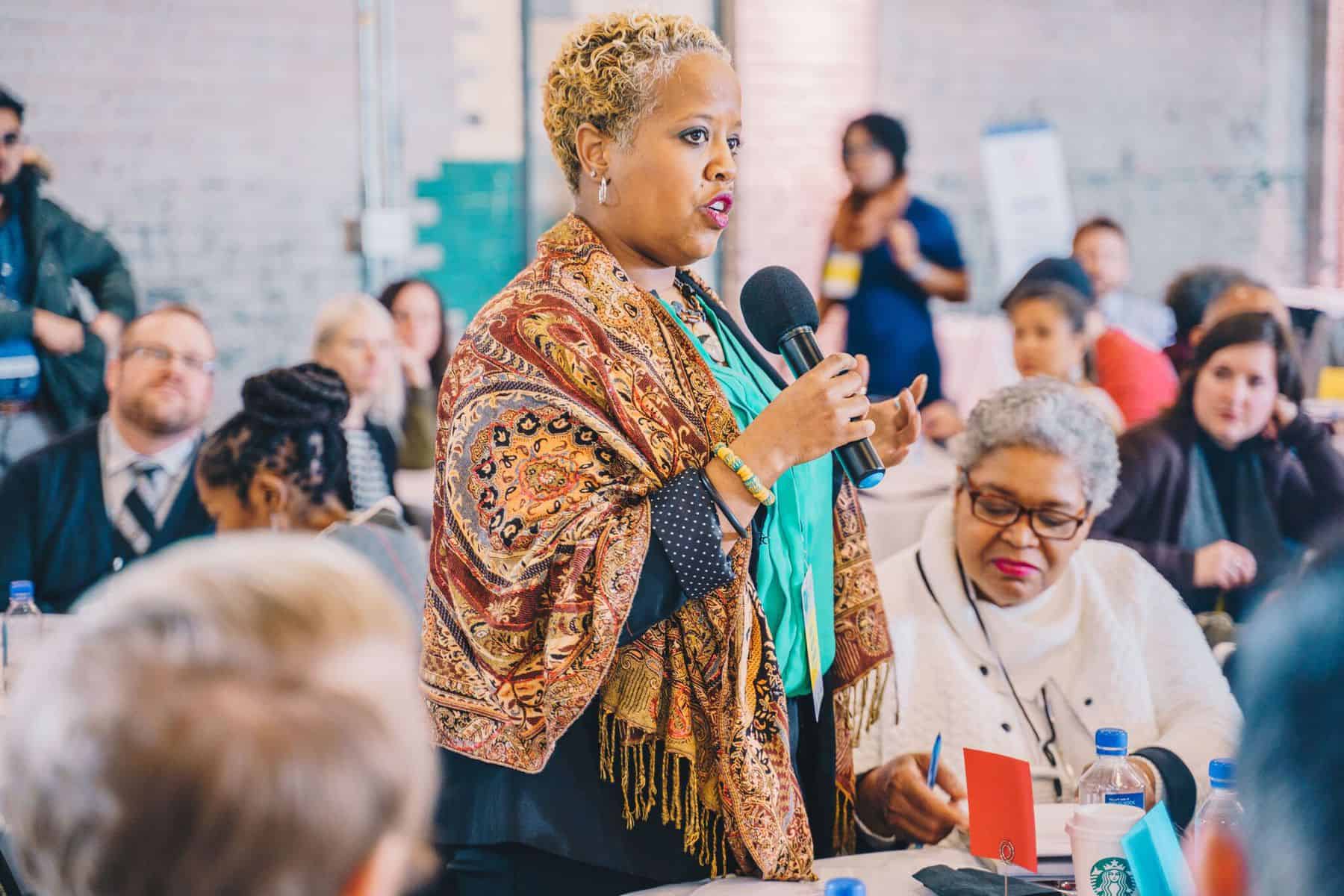Our Approach
The Better Arguments Project is a national civic initiative created to help bridge divides – not by papering over those divides but by helping people have Better Arguments. In this sense, arguments don’t have to drive us apart. Better Arguments can bring us together. In partnership with communities and advisers around the country, we have synthesized three dimensions and five principles of a Better Argument.
Three Dimensions of Arguing Better
Shared history informs current reality. Today’s civic arguments are rooted in historical context. A Better Argument requires that all participants seek to understand the history that informs today’s debates and ground their claims using historical context.
How we feel affects how we show up. Seek to understand why the other party is taking a certain stance, rather than immediately negating that party’s opinion. We can and should challenge each other’s statements if they are not true, but we cannot challenge or diminish each other’s emotional reactions to a situation.
Power impacts conversation dynamics. In many spaces of civil discourse, participants are reckoning with imbalances, real or perceived. In a Better Argument, we need to consider: What are the power dynamics related to this argument? What is my own role in these power dynamics? And how can power be redistributed to even the playing field?
Five Principles of a Better Argument
Take Winning off the Table
Lead with a desire to understand and learn, rather than to win. The debates we are exposed to are often set up to have participants battle it out with the goal of winning or defeating the other side. A Better Argument, however, is about presence and the robust exchange of ideas.
Prioritize Relationships and Listen Passionately
Focus on building honest connections. An argument is improved when we prepare to listen, not just advance our own points of view. Seek to learn more about a person beyond their opinion on the topic that you are arguing about and make a point to share more about yourself than just your own opinion.
Pay Attention to Context
Acknowledge the many factors that may influence beliefs. Civic debates don’t take place in a vacuum. Rather, they are surrounded by the context of lived experiences, access to information, culture, and more. Make room for these influences by trying to understand why a person holds their belief, rather than having a knee-jerk reaction.
Embrace Vulnerability
Consider the benefits of opening up in an argument. Vulnerability is necessary to enter any kind of conversation that is not simply confirming your own worldview. By getting vulnerable, we can open new avenues for human connection. Keep in mind that getting vulnerable is something to consider when you have something to gain or grow from it. Consider your “why.” Do you want to hear a new point of view? Do you want to make sure your own perspective is heard? Knowing your “why” can help you engage in a way that may push your comfort zone, but ensures you are still comfortable with the interaction.
Make Room to Transform
Be open to new and varied perspectives. Without a goal of winning, the experience of a Better Argument can instead change how we engage with a difficult issue and with one another in daily interactions. Participants have cited that they walk away with more nuance, less assumptions, and better solutions.

Our community
loves what we do
We build trust through our experiences. Read what our users say about our work
-
Based on the information in the session, a colleague and I shared insights with our staff, then we broke into small groups to “workshop” arguments we had experienced, that did not go well–we found ways where we might apply strategies to improve the arguments we had experienced.

I work at a museum and historic site that engages in similar work (public dialogue, civic education, etc.). Following your training I shared some of my notes and helpful takeaways with colleagues and continue to evangelize your program!

-
I am mindful of the importance of listening to understand, rather than to win. I have the chance to apply this all the time, with people who have not had the training. It takes more work, and it is worth it.

Really appreciated how well structured and organized the training was. I valued all the different ways to engage (chat, poll, small groups, etc.) and that we returned to same small groups for both breakouts. Very well done.

-
Thank you for providing these helpful and critical resources and trainings. I have encouraged several others to participate, and we shared the principles with others at a recent conference.

I think many Americans are looking for ways to engage others but need the very real assistance of efforts like The Better Arguments Project to start doing so more pro-actively. Thank you for your work.


What is a Better Argument?
This document summarizes key learnings throughout the discovery phase of this project about how to engage in Better Arguments.

Americans Don’t Need Reconciliation—They Need to Get Better at Arguing
A former Clinton administration official studied how to facilitate more constructive arguments among Americans. These are his conclusions.